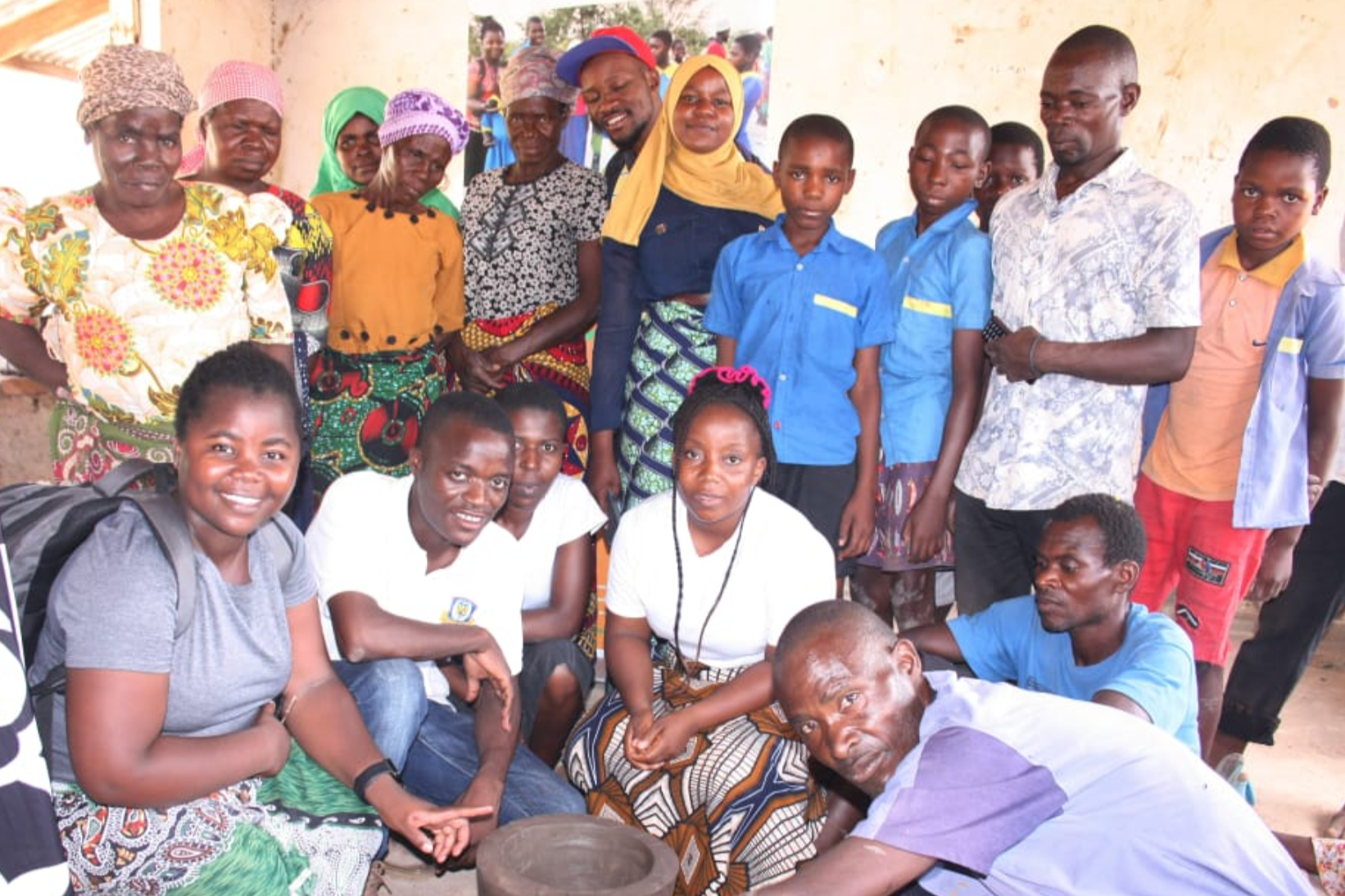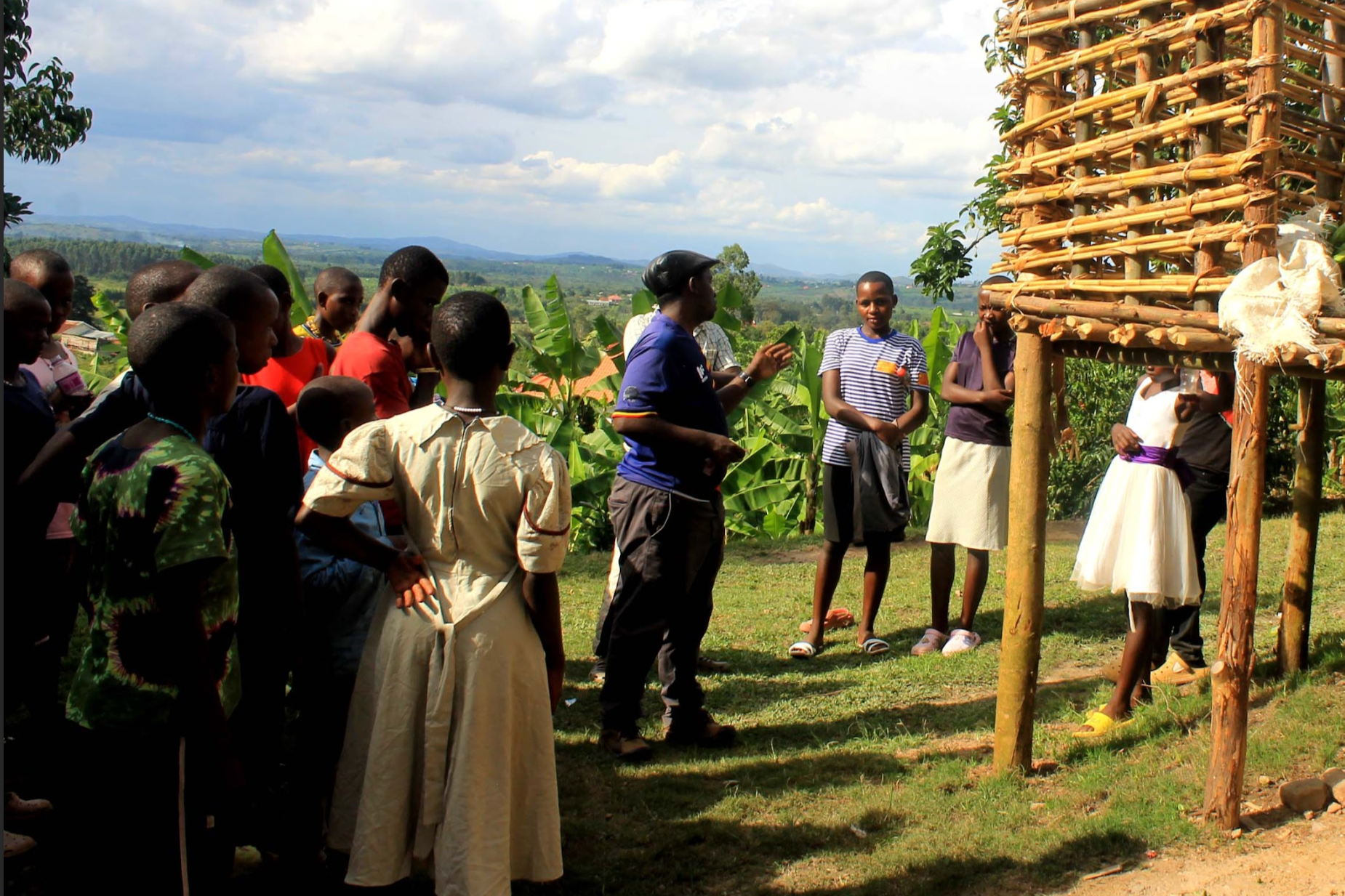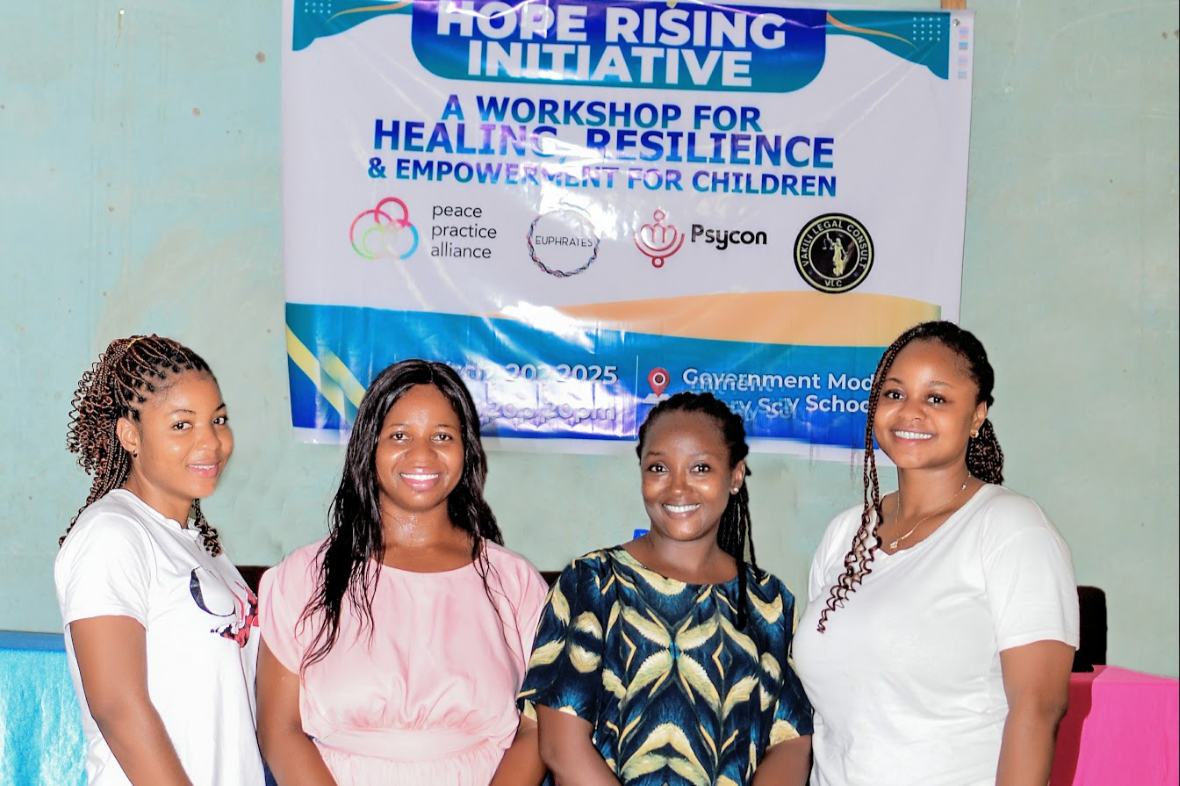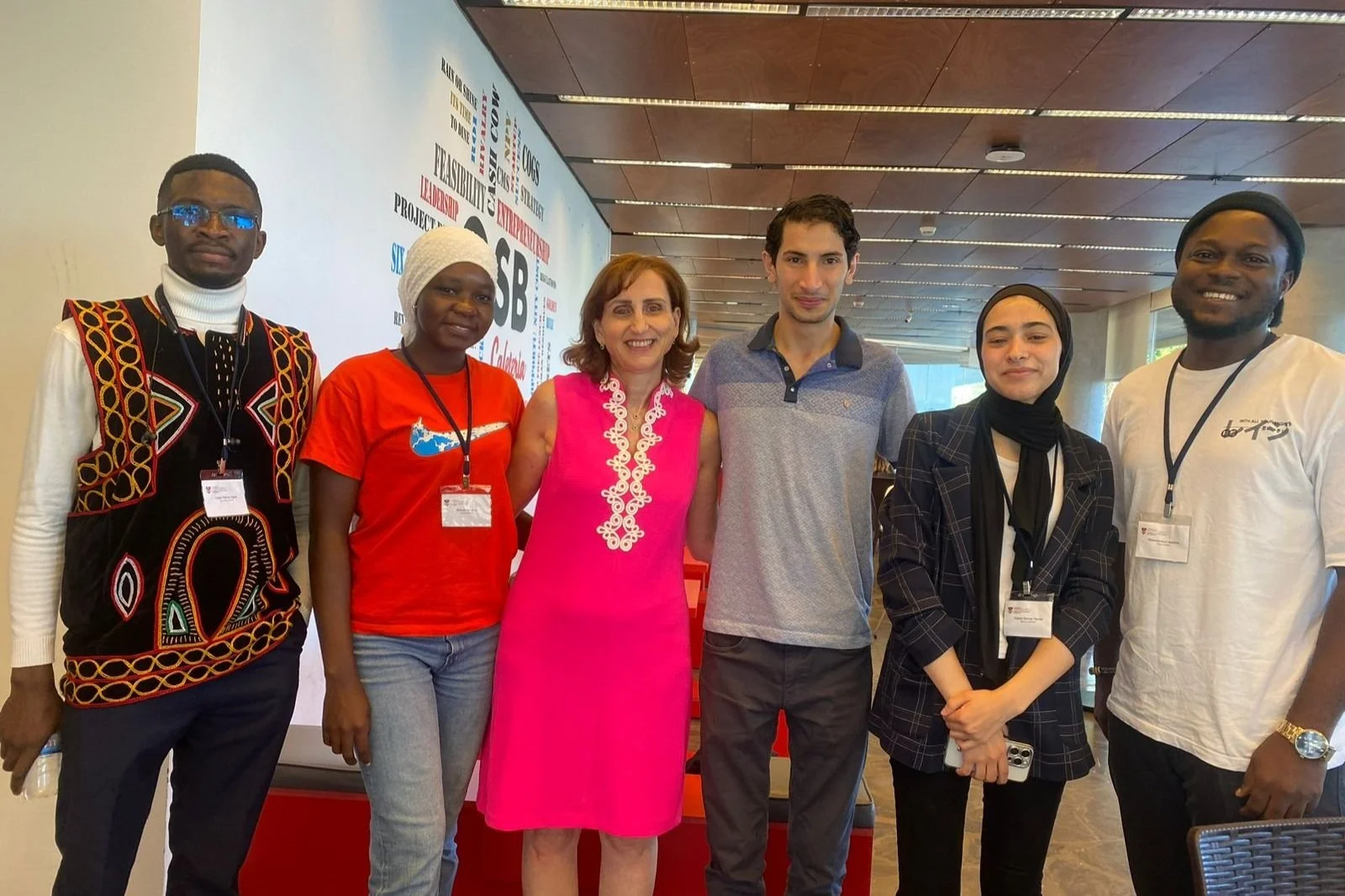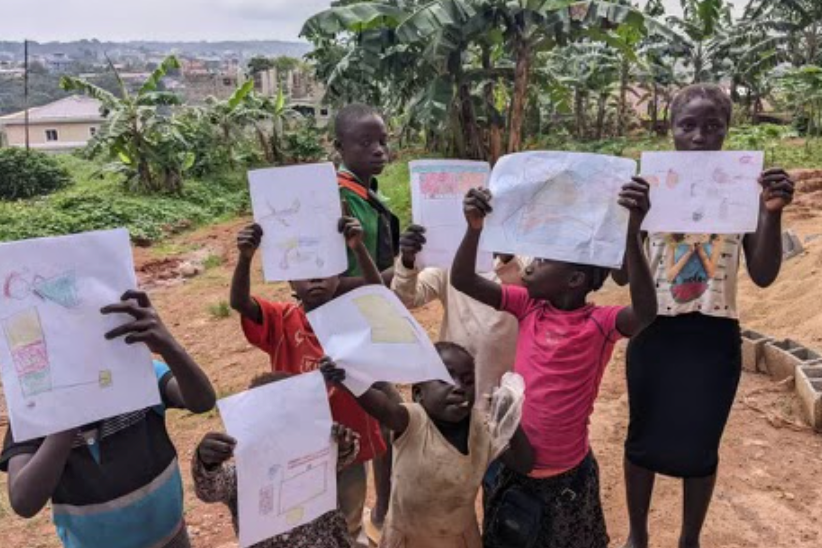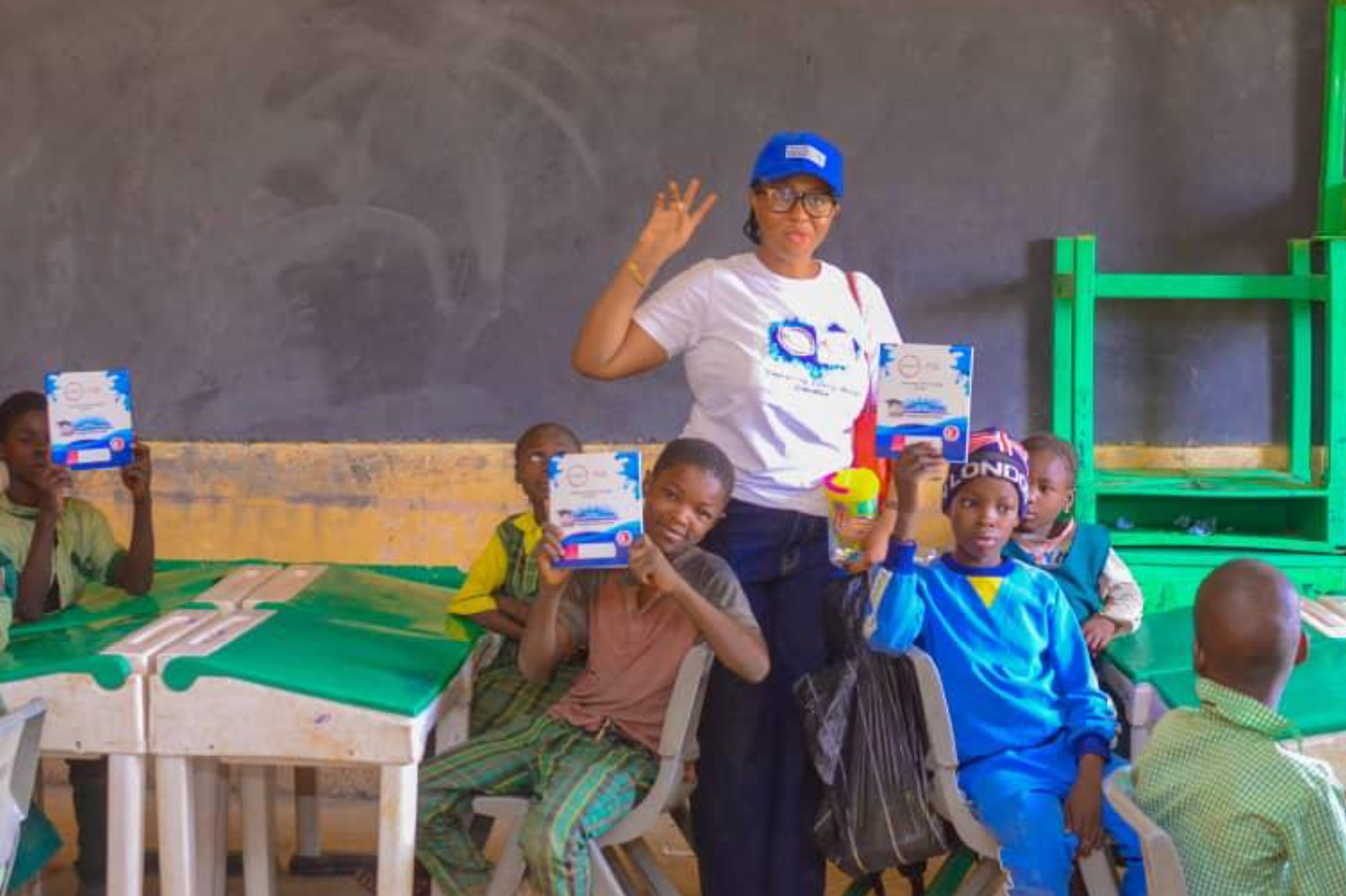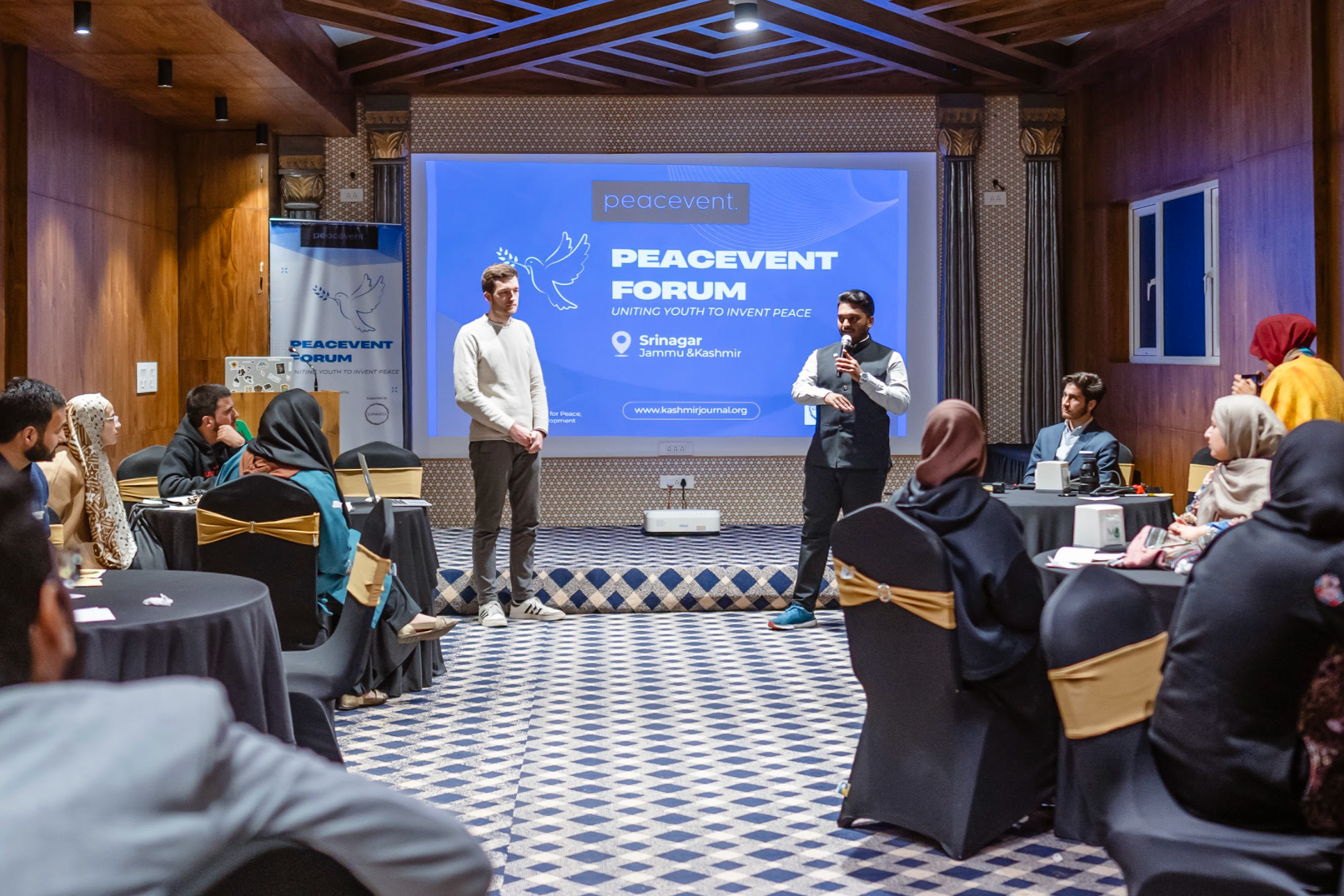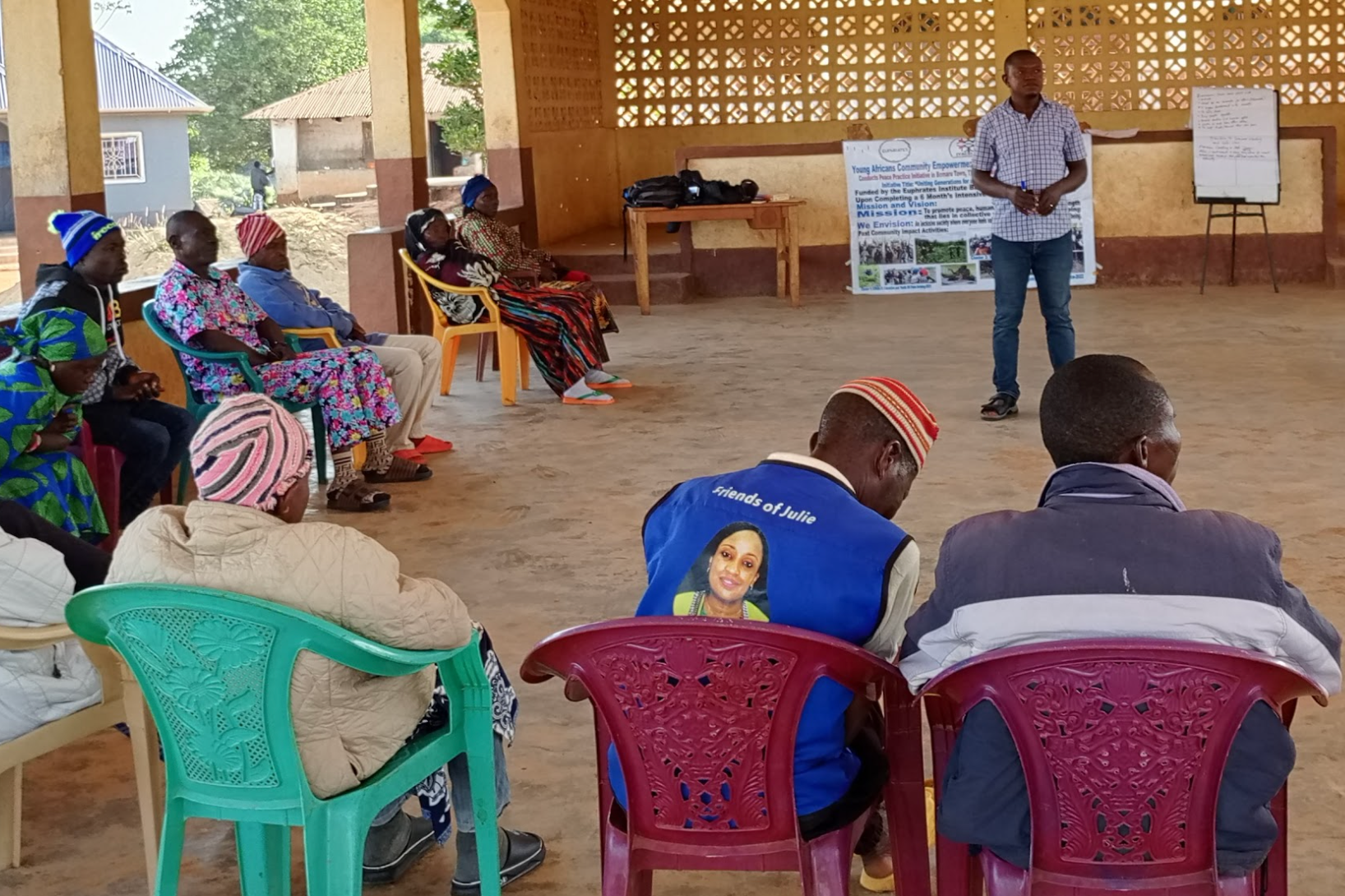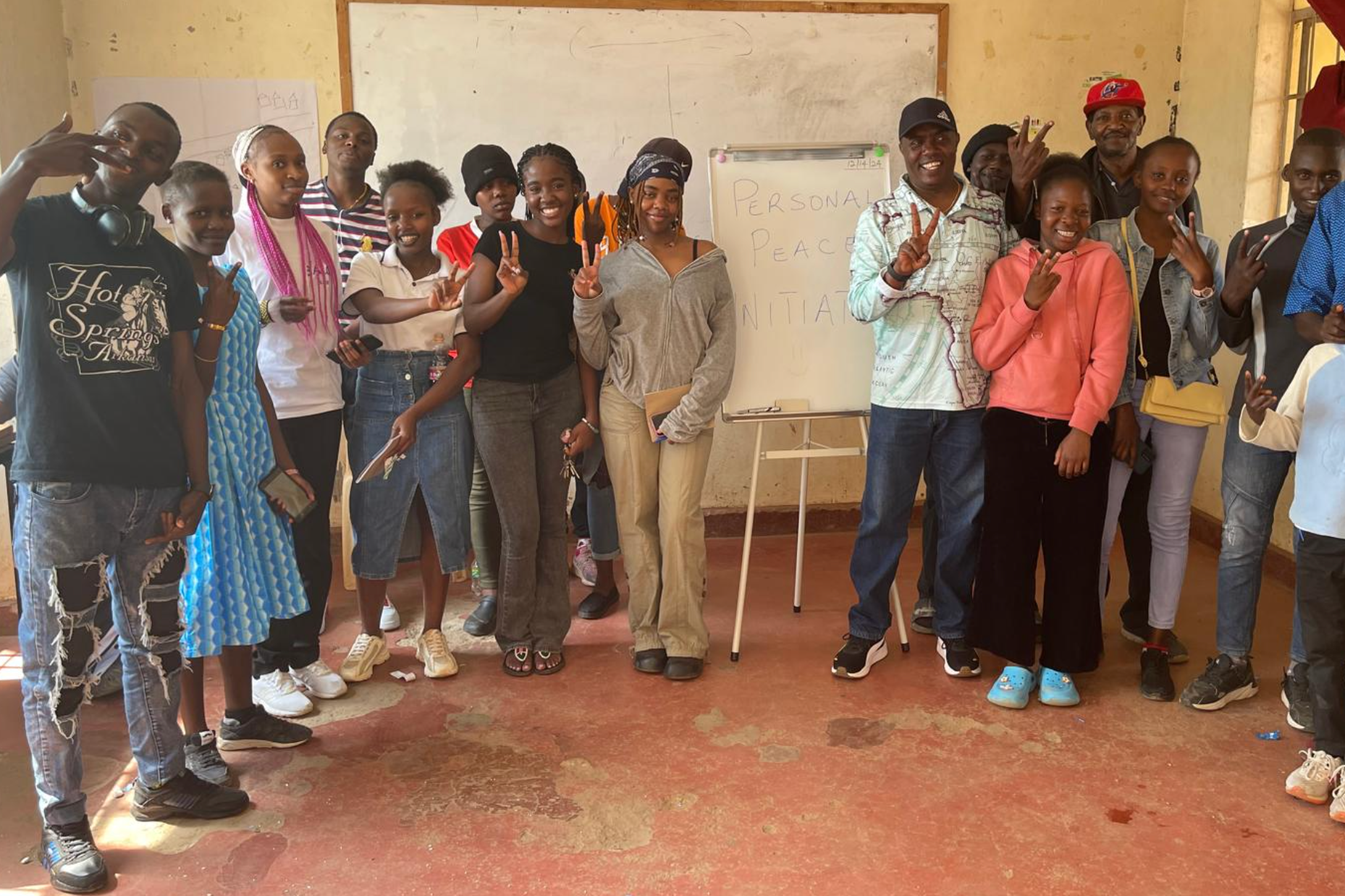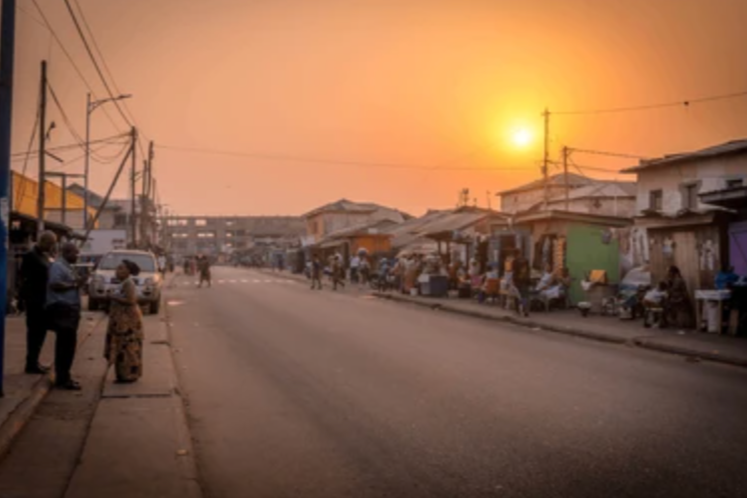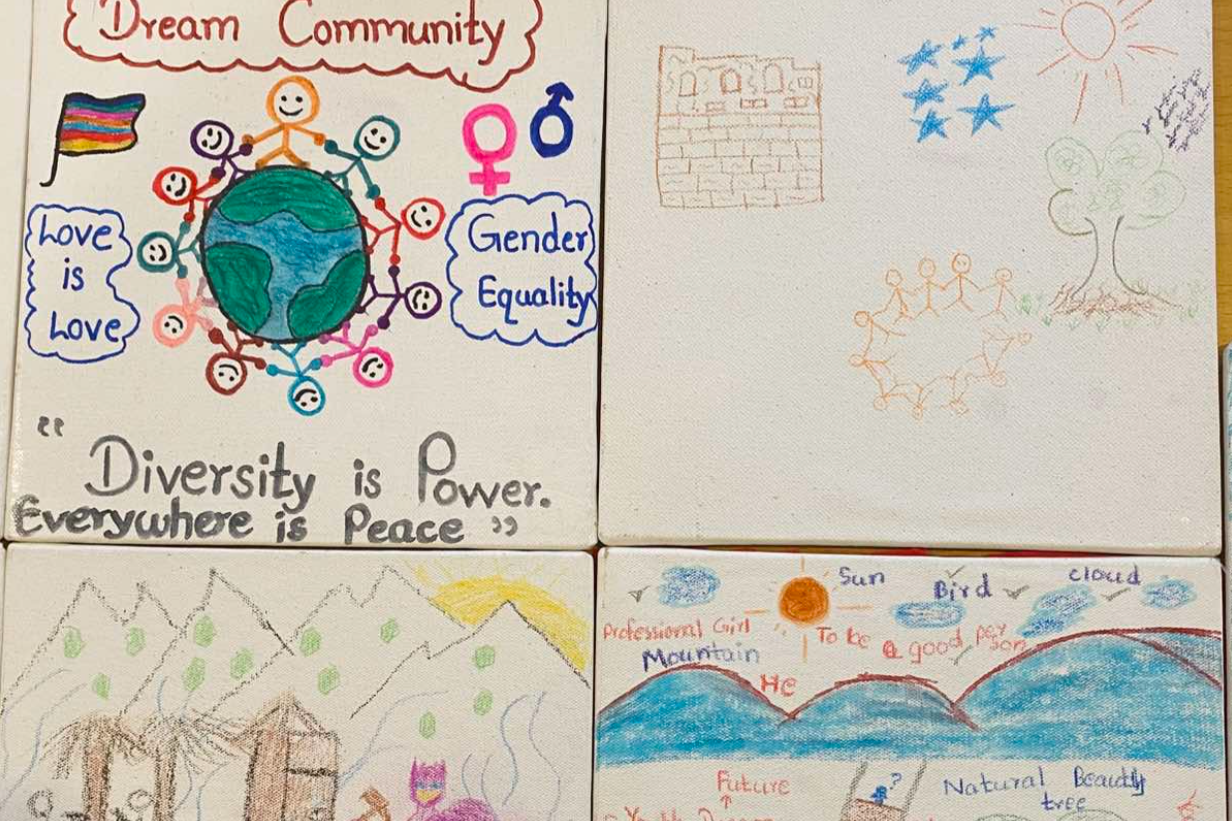2024 Peace Practice Initiatives
After completing the 2024 Peace Practice Alliance (PPA), members of the cohort brought their learning into action through powerful community peace initiatives around the world. This year, 17 initiatives were launched by PPA members, including two that were led collaboratively by multiple peace leaders. Some projects are still underway, and a few are not included here due to safety considerations. These initiatives reflect the diverse, creative, and deeply rooted ways participants are embodying peace leadership in their communities.
The following descriptions are compiled and written by 2024 PPA leaders and the Euphrates team.
Sustainable Cooking for Interfaith
Harmony and Environmental Stewardship
Malawi | Chrispine, Francis, Hellen
-
Hellen, Chrispine, and Francis, led Sustainable Cooking Solutions for Interfaith Harmony and Environmental Conservation in Machinga District, Malawi. This community-based initiative addressed environmental degradation and religious tension by training women, youth, and religious leaders from both Muslim and Christian backgrounds to build and use Chitetezo Mbaula, improved cookstoves that reduce firewood use and indoor air pollution. Over 400 cookstoves were produced and distributed, directly benefiting 450 individuals. Alongside these trainings, the team facilitated interfaith dialogues and peacebuilding workshops, with 85% of participants reporting improved understanding across faith lines and 70% engaging in interfaith collaboration after the program. Christian and Muslim women’s groups even launched a joint cookstove enterprise, marking a powerful shift in local cooperation. The project also led to the formation of three interfaith councils and strengthened ties with the District Environmental Office. The team plans to sustain the initiative through continued community training, group formation, and shared leadership, proving that peace and environmental sustainability can grow hand in hand.
Peace Education Through Rabbit Rearing
Uganda | Edgar
-
Edgar led Peace Education Through Rabbit Rearing in Nyakayojo, Mbarara, Uganda, a unique initiative that combined animal care with peace education for 30 children between the ages of 8 and 13. Designed to foster empathy, responsibility, and nonviolence from an early age, the program included sessions on meditation, prayer, and caring for rabbits, alongside discussions about behavior, self-awareness, and personal growth. Children visited one another’s homes to help with rabbit housing and shared openly about behaviors they wished to improve. Parents and guardians observed positive shifts in the children’s emotional wellbeing and sense of responsibility. Many expressed pride in their children’s newfound commitment to care and cooperation. So far, 15 children have received rabbits, with others set to receive theirs through a planned peer-sharing model, where each child will pass along a rabbit from their first litter. This cycle of giving and connection not only builds sustainability into the project, but also reinforces lessons of generosity, patience, and community care. Edgar plans to continue nurturing the initiative with support for operational needs like transport and outreach, demonstrating how peace can grow in everyday acts of care, one rabbit at a time.
Hope Rising Initiative
Nigeria | Esther
-
Esther led the Hope Rising Initiative, a one-day healing and empowerment workshop held in Makurdi, Nigeria, for 32 youth ages 12 to 18. Sessions were facilitated by experts in mental health, emotional resilience, and peacebuilding, offering youth tools to process trauma, build self-esteem, and manage conflict through nonviolent communication. Activities included visioning exercises, group role-play, and a collaborative Legacy Wall where participants named their commitments to personal growth. The impact was immediate and profound: participants reported increased confidence, emotional strength, and connection across age groups. Several opened up for the first time about their experiences with trauma. Eighteen scholarships were awarded to outstanding youth demonstrating leadership and growth. Ultimately, the workshop created a compassionate and empowering environment, planting seeds of healing and hope for a more resilient generation.
Peace Club
@ American University of Beirut
Lebanon | Fahid
-
Fahid led a Virtual Peace Club in Lebanon during the outbreak of conflict between Lebanon and Israel, which forced a shift to online learning at the American University of Beirut (AUB). Originally envisioned as an in-person initiative, the project pivoted quickly to offer virtual tutoring and peacebuilding support to over 300 high school students affected by the war. In partnership with MMKN NGO and a team of AUB student volunteers, Fahid provided academic instruction in core subjects, internet stipends for accessibility, and weekly mindfulness and resilience workshops—including one led by a Lebanese peacebuilding expert. To strengthen engagement, Fahid created a WhatsApp group connecting students, volunteers, and partners, fostering community and continuity during uncertainty. Monitoring data showed that 88% of students reported increased academic understanding and emotional resilience, and 85% felt more confident applying peace and mindfulness practices. Volunteers also deepened their peacebuilding skills and sense of civic responsibility. Despite connectivity challenges and emotional strain, the initiative empowered youth with tools for learning and healing. Fahid now plans to sustain the program by strengthening local partnerships and securing additional support, showing how digital platforms can anchor peace efforts even in times of crisis.
Intercultural Dialogue for Children and
Inner Peace Workshops for Women
Cameroon | Françoise
-
Françoise led Intercultural Dialogue Education for Children and Inner Peace Workshops for Women in Yaoundé, Cameroon, in collaboration with Health and Development Foundation and Human Rights Bridge. Recognizing the compounded stressors faced by refugees from the Central African Republic, many of whom had fled war and now face economic insecurity, Françoise created two parallel programs to address a common need, inner peace. The first program brought together 25 refugee women to reflect on their lives, practice relaxation techniques, and explore emotional well-being. Guided breathing exercises proved transformative for many. One woman shared that her anxiety and physical pain dissolved during the session, offering her a rare moment of calm. The second program invited 60 children, aged 7–16, to explore inner peace through creativity. With joy and freedom, the children used art to express their thoughts and emotions, filling the room with laughter, pride, and connection. At the end of the session, they excitedly shared their drawings with one another, deepening bonds and reinforcing the role of peace education in childhood development. Together, these workshops blended theory and practice, offering women and children new tools for inner strength and interpersonal connection. While many participants expressed a strong desire for additional sessions and more time for dialogue, the initiative has already sparked a sustained interest in peacebuilding practices within the community. Françoise hopes to expand this effort with future funding to include more one-on-one support and reach additional families, affirming that peace begins within and can ripple outward, especially in places touched by displacement and hardship.
Empowering Futures Through
Education and Peacebuilding
Nigeria | Goodness
-
Goodness led Empowering Futures Through Education in Jos East, Plateau State, Nigeria, a region historically marked by intercommunal violence and systemic poverty. Recognizing that trauma and lack of access to education often go hand-in-hand, Goodness designed a two-part initiative, providing direct educational support to children and equipping adults with peace leadership and trauma-informed tools. Workshops were held for parents, teachers, and community leaders focused on mental health, trauma healing, and nonviolent communication. By the end of the program, 80% of participants reported a better understanding of peace and resilience, with many expressing how the tools had already improved their relationships at home and in school. A baseline and endline survey helped track improvements in academic performance, emotional well-being, and community engagement. The initiative reached over 150 individuals and created space for healing, connection, and growth. Though resource limitations and inflation posed challenges, Goodness plans to sustain the effort through personal contributions and new partnerships. Her work demonstrates the transformative impact of pairing education with emotional support and community-based peace leadership.
Peacevent
Uniting Youth to Invent Peace
Kashmir | Irfan & Owais
-
Owais and Irfan led Peacevent – Uniting Youth to Invent Peace, a 15-week hybrid training program that equipped 50 young leaders from conflict-affected areas of Kashmir with tools in peace leadership and development justice. Drawing on lessons from the PPA, the initiative combined weekly virtual sessions on human rights, climate justice, and transitional justice with a special in-person workshop in Kashmir featuring thematic exercises, storytelling, and a cultural Iftaar. Participants engaged in Peace Trails, photo walks and tourism-based learning, and conducted outreach at five educational institutions, including two schools in unrest-prone zones and one led by a PPA alum, introducing students to peace studies and the Right to Development. The program fostered leadership and local impact, with participants organizing peer workshops, community dialogues, and even proposing peace education modules within their institutions. Post-program surveys showed 90% of participants gained significant knowledge, and more than 75% reported increased confidence in applying what they learned. Though logistical hurdles such as limited funding, mental health strain, and government restrictions shaped the experience, Peacevent offered a transformative space for youth to lead from lived experience. The initiative concluded with the launch of “Peace Beyond Episodes,” a campaign promoting everyday peacebuilding rooted in community leadership, with aspirations to grow into a recurring fellowship cycle through local and international partnerships.
Uniting Generations for a
Peaceful and Conflict-Free Society
Sierra Leone | Lossie
-
Lossie led Uniting Generations for a Peaceful and Conflict-Free Society in Bomaru Town, Eastern Sierra Leone, a region historically affected by political violence and deep-rooted divisions. Located along the Sierra Leone-Liberia border, Bomaru has experienced rising political tensions, with youth often manipulated by party leaders and used as tools for violence. To address these challenges, Lossie organized a four-day peacebuilding training for 80 participants, including youth, local authorities, religious leaders, and security officers, focusing on personal peace, mediation, and conflict resolution. By the end of the training, 95% of participants reported gaining essential knowledge in peace leadership. The initiative culminated in a community-wide education event with 320 attendees, where participants engaged in role-playing exercises, shared reflections, and facilitated a reconciliation ceremony led by the Town Chief and Chief Imam, resulting in a public declaration of peace and unity. The initiative successfully bridged intergenerational gaps, reduced political tensions, and established a seven-member Community Peace Leadership Committee to sustain these efforts. Inspired by the impact, Lossie plans to continue his work by engaging the Bike Riders Union along the Sierra Leone-Liberia border and seeking partnerships to expand his peacebuilding initiatives, demonstrating the transformative power of grassroots peace leadership.
Empowering Young Adolescent Girls
Through Peace Leadership
India | Mrinalini
-
Mrinalini led Empowering Young Adolescent Girls Through Peace Leadership in Jaipur, India, working with 70 girls and 10 boys at Helping Hands School to foster confidence, health awareness, education, and leadership. Over nine months, she facilitated workshops on inner peace, self-identity, and mindfulness, organized academic support groups with guest speakers, and led peer mentoring activities that allowed students to explore community challenges and practice collaborative dialogue. The initiative also included health awareness sessions, a vibrant community campaign for International Women’s Day, and advocacy training with local leaders, including a Sub-Divisional Magistrate who spoke on child marriage prevention. Family engagement sessions further reinforced the importance of girls’ education and empowerment. Monitoring showed increased attendance, stronger participation in school activities, and greater confidence among students. Parents and teachers reported positive shifts in attitudes toward girls’ roles in the community. Despite challenges related to transportation, scheduling, and sustaining attendance, Mrinalini adapted by hosting sessions in parks and community centers, resulting in a 70% boost in engagement. She plans to continue the work by training student leaders, deepening partnerships, and seeking further funding. Her initiative demonstrates how investing in adolescent girls creates ripple effects across families, schools, and communities, laying a foundation for long-term peace and gender equity.
Healing and Empowering Women
Through Peace Practice
Nigeria | Perpetua
-
Perpetua led Introducing Peace Practice to Women Affected by Violence in the Kurumi Jared community of Kaduna, Nigeria, supporting women impacted by trauma from Boko Haram insurgency. The initiative centered on counseling, sensitization, and trauma healing, beginning with an orientation to build trust and introduce the goals of the project. Professional counselors then held one-on-one sessions, offering women a space to share their stories and learn techniques for emotional stability and recovery. Pre- and post-assessment tools were used to measure the program’s effectiveness, and participant feedback highlighted a growing sense of freedom from bitterness, renewed hope, and confidence. One woman shared that she now believes healing is truly possible. In total, 52 individuals participated, and the project’s influence is extending beyond the original group. Participants are already sharing what they’ve learned in their communities, with one woman launching a local initiative called Thinking Paths. Despite initial skepticism from participants, Perpetua built trust through continued engagement and collaboration. She now plans to sustain the work through volunteers and community-led efforts, believing deeply in the importance of supporting women’s healing and leadership. The project reflects the transformative power of trauma-informed peacebuilding rooted in care, trust, and lived experience.
Youth-Led Peace Education
Afghanistan
-
This youth-led initiative entitled Peaceful Pathway to victory was a virtual peace education initiative designed and led by Huma to help youth reimagine what peace can look like in their lives and communities, especially in contexts where peace often feels distant. Drawing on lessons from the PPA, the initiative brought together 24 participants from various regions. Through interactive workshops, breakout discussions, and guest speakers from the Euphrates Institute, participants explored personal peace, researched peace role models, and reflected on their values and leadership. Early responses were deeply encouraging, with participants expressing inspiration, a sense of global connection, and a stronger commitment to peacebuilding. The project serves as a powerful example of youth-led leadership and the possibilities that emerge even in challenging environments.
Maintaining Peace
Kenya | Samuel
-
Maintaining Peace was a one-day community workshop led by Samuel in Kenya focused on building awareness around peace, rooted in lessons from the PPA. Eighteen participants, mostly youth, engaged in facilitated discussions, group activities, and individual presentations that explored personal peace, community harmony, and practical tools for nonviolent leadership. Participants demonstrated a high level of understanding and expressed enthusiasm to put their learning into action within their homes and neighborhoods. The gathering took place during a busy holiday season and sparked strong interest in future workshops. One participant later shared how the experience helped her improve relationships at home. The initiative plans to expand engagement through additional sessions to meet growing community interest.
Patience in Practice
Ghana
-
Patience in Practice is a grassroots peace initiative in Teshie, Ghana, focused on cultivating patience as a pathway to personal and community peace. Through small-group discussions, door-to-door engagement, and shared reflection, participants examined the roots of impatience and its impact on everyday relationships. Groups practiced observing their own responses, discussed peacebuilding tools, and explored how personal peace could shift community dynamics. A total of 20 participants engaged regularly, with others joining intermittently. One powerful story emerged from a young man who had previously acted violently toward his father but, through the program, transformed his behavior and began showing care and restraint. The initiative strengthened understanding of collective peace and offered participants a practical foundation for emotional regulation and nonviolent connection.
Youth Engagement Through
Storytelling and Arts
Myanmar
-
Youth Engagement Through Storytelling and Arts was a hybrid workshop designed to empower youth to use storytelling and creative expression as tools for peace, sustainability, and community leadership. Participants explored identity, environmental awareness, and social cohesion through eco-printing, role-play, and art. Nonviolent communication principles, drawn from the PPA, guided each session, creating a safe and inclusive space. Eleven youth participated directly, and the depth of engagement was strong. The initiative reached a wider audience through a public webinar that garnered nearly 1,000 views. Participants reported increased confidence, storytelling skills, and interest in applying what they learned to community challenges. Plans are underway to expand this work by training peer facilitators, developing localized storytelling materials, and engaging rural youth in future sessions.

